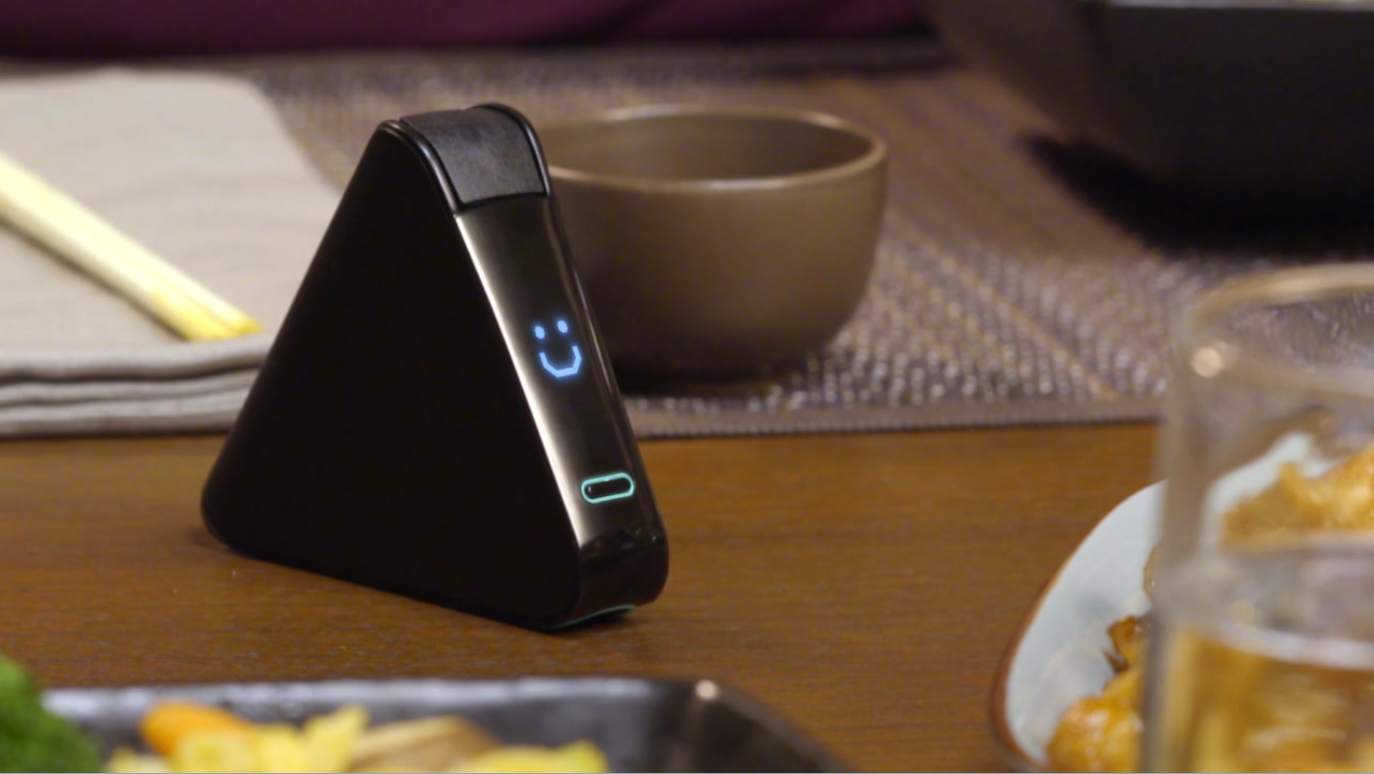This hand-held device can test food for gluten in under 2 minutes
An innovative hand-held device for testing food for gluten will soon be available. All it takes is a morsel of food and two minutes.

A free daily email with the biggest news stories of the day – and the best features from TheWeek.com
You are now subscribed
Your newsletter sign-up was successful
Gluten-watchers soon will have a new tool to make eating easier.
Called Nima, the portable, quick-testing device can detect gluten in liquids, solids, or other edibles. Slated for a summer release, it works by analyzing a small amount of food — about a gram — placed inside a canister. A smiley face means there’s no gluten. A frown, it’s present.
The device was developed to help those who are sensitive to gluten — a protein found in wheat, rye, or barley — or who are suffering from Celiac disease, an autoimmune disorder in which eating gluten can damage the small intestine (Celiac afflicts roughly three million Americans). But with gluten-free also a fad diet, Nima is likely to gain followers among those who consider the protein taboo for reasons other than a serious health condition. One in five Americans is trying to avoid gluten, according to PBS Newshour.
The Week
Escape your echo chamber. Get the facts behind the news, plus analysis from multiple perspectives.

Sign up for The Week's Free Newsletters
From our morning news briefing to a weekly Good News Newsletter, get the best of The Week delivered directly to your inbox.
From our morning news briefing to a weekly Good News Newsletter, get the best of The Week delivered directly to your inbox.
The company behind Nima is the San Francisco-based 6Sensor Labs, a startup that designs consumer-friendly technology for testing food for allergens. Its co-founder Shireen Yates, who has multiple food allergies, conceived of the product as an answer to the frustration she felt when restaurant employees couldn’t tell her enough about her food. (Nima means fair and equitable in Farsi, the native language of Yates' family.)
“What we are doing is giving you that extra piece of data to really improve your odds of staying your healthiest self when you’re eating out, and actively trying to avoid certain foods,” Yates told PBS Newshour.
While a gluten-testing device isn't exactly new, the capability was previously relegated to commercial labs or multi-step home-testing kits. Nima takes about two minutes to finish its work, identifying gluten through an antibody-based test that can detect as little as five parts per million of the protein; the Food and Drug Administration standard for labeling something “gluten-free” is 20 parts per million.
Nima’s mobile app also stores test results, keeps track of foods, and has a platform that lets users communicate with one another. Down the line, it may offer the opportunity to integrate personal results with restaurant apps like Yelp, creating a community space for sharing menu do's and don'ts.
A free daily email with the biggest news stories of the day – and the best features from TheWeek.com
Introduced late last year, Nima was named one of Time’s best inventions of 2015 and grabbed further attention at the 2016 Consumer Electronics Show (CES) in Las Vegas in January. It also received a boost during CES in the form of a victory at TechCrunch’s Hardware Battlefield, where 6Sensor Labs competed against other startups for a prize of $50,000.
Next up for 6Sensor? Tackling peanuts and dairy.
Alexis Boncy is special projects editor for The Week and TheWeek.com. Previously she was the managing editor for the alumni magazine Columbia College Today. She has an M.F.A. from Columbia University's School of the Arts and a B.A. from the University of Virginia.
-
 Quiz of The Week: 14 – 20 February
Quiz of The Week: 14 – 20 FebruaryQuiz Have you been paying attention to The Week’s news?
-
 The Week Unwrapped: Do the Freemasons have too much sway in the police force?
The Week Unwrapped: Do the Freemasons have too much sway in the police force?Podcast Plus, what does the growing popularity of prediction markets mean for the future? And why are UK film and TV workers struggling?
-
 Properties of the week: pretty thatched cottages
Properties of the week: pretty thatched cottagesThe Week Recommends Featuring homes in West Sussex, Dorset and Suffolk
-
 Epstein files topple law CEO, roil UK government
Epstein files topple law CEO, roil UK governmentSpeed Read Peter Mandelson, Britain’s former ambassador to the US, is caught up in the scandal
-
 Iran and US prepare to meet after skirmishes
Iran and US prepare to meet after skirmishesSpeed Read The incident comes amid heightened tensions in the Middle East
-
 Israel retrieves final hostage’s body from Gaza
Israel retrieves final hostage’s body from GazaSpeed Read The 24-year-old police officer was killed during the initial Hamas attack
-
 China’s Xi targets top general in growing purge
China’s Xi targets top general in growing purgeSpeed Read Zhang Youxia is being investigated over ‘grave violations’ of the law
-
 Panama and Canada are negotiating over a crucial copper mine
Panama and Canada are negotiating over a crucial copper mineIn the Spotlight Panama is set to make a final decision on the mine this summer
-
 Why Greenland’s natural resources are nearly impossible to mine
Why Greenland’s natural resources are nearly impossible to mineThe Explainer The country’s natural landscape makes the task extremely difficult
-
 Iran cuts internet as protests escalate
Iran cuts internet as protests escalateSpeed Reada Government buildings across the country have been set on fire
-
 US nabs ‘shadow’ tanker claimed by Russia
US nabs ‘shadow’ tanker claimed by RussiaSpeed Read The ship was one of two vessels seized by the US military